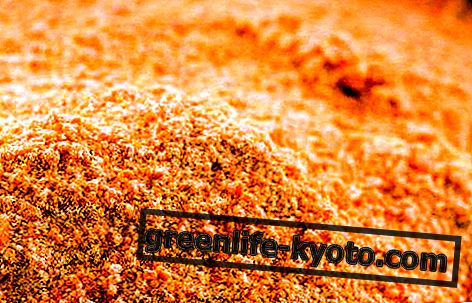Description of Cantharis
The Cantharis homeopathic remedy is extracted, as its Latin name indicates, from the insect Cantharis vesicator . It is a beetle belonging to the Meloid family, which lives in most of central and southern Europe. Its scientific name is Lytta vesicatoria, but it is also known as Cantaride and popularly as the "Spanish fly". The Cantharis homeopathic remedy is obtained by dyeing or grinding Cantharis vesicator insects with lactose and subsequent dilutions and dynamizations in a water-alcohol solution.
The insect contains an active ingredient, called cantharidin, which is extracted from the powder obtained after its drying and which has been known since ancient times. It has a characteristic, unpleasant smell and a pungent bitter taste ; it is insoluble in cold water and soluble in oils. Cantharidin has rubefacient and vesicatory properties. It is highly irritating to the skin and can cause blisters at the contact points. Due to the ease of its skin absorption or worse still if ingested, it is extremely dangerous for human health, being able to cause, in excessive qualities, even death. It was used to stimulate the mares' entry into heat.
When using Cantharis
Cantharis is a remedy with a local action, which acts mainly on the urinary tract, on the gastro-intestinal apparatus, on the nervous system, on the skin, on the mucous membranes. The Cantharis homeopathic remedy is used in the following main cases:
- urinary tract disorders, cystitis and similar disorders; inflammation of the female genital tract, dysmenorrhea
- skin problems, erythema, dermatitis, herpes, burns
- head problems, dizziness and headache, conjunctivitis, canker sores
- throat disorders, pharyngitis, hoarseness, laryngitis
- respiratory problems, catarrhal diseases of the airways with mucus
- disorders of the gastro-intestinal tract, stomach pains, colic, diarrhea
- nervous system disorders, inflammation of nervous tissues, anxiety, restlessness, irritation, excess of anger
Doses and administration
In all cases, if acute dilution 5CH, 1 granule every 5 - 10 min, or 5 drops every 10 - 15 min, lengthening the times with improvements; if recurrent 7CH dilution, 3 - 4 granules or 5 - 10 drops every 3 hours.
To whom Cantharis is recommended
The individual who requires Cantharis has burning sensations and violent heat, he often has dermatitis, unbearable abdominal pains, cutting edges that come especially when the bladder is full, has difficult, slow and painful urination, and frequent with few drops emission of urine. Bladder pains get worse by drinking even small amounts of water or drinking coffee. The subject has bright eyes and very dilated pupils, a pale face with an expression of suffering, thirst with aversion to drinking . He is a tired, depressed, restless and agitated person and has an increased sexual desire and suffers from anxiety.













